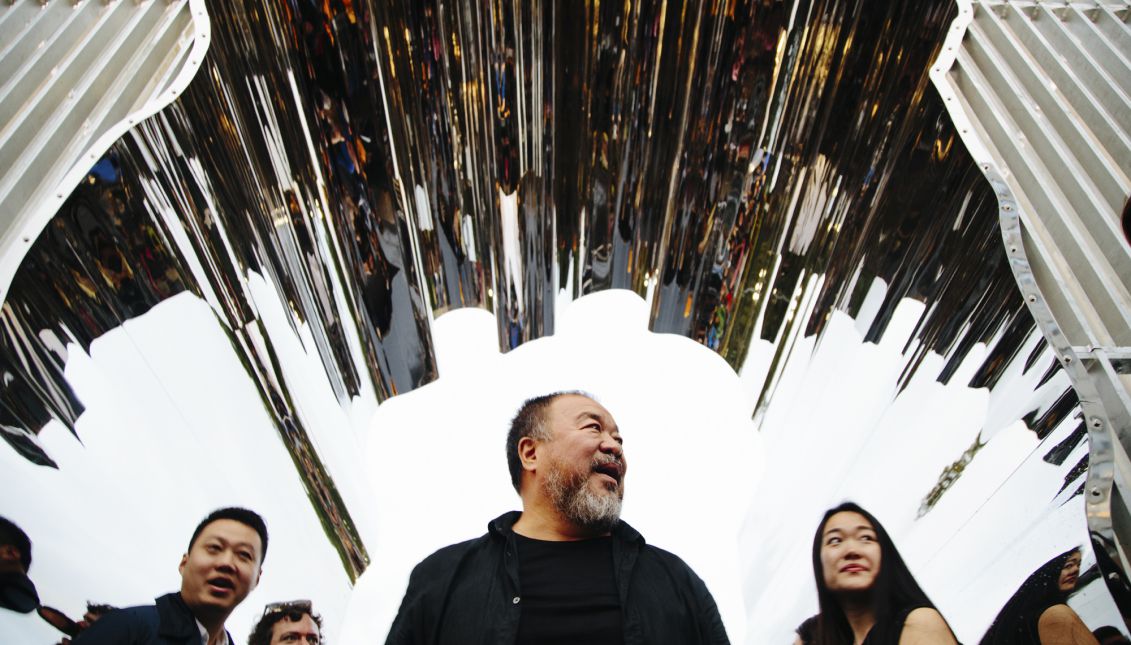
Ai Weiwei criticizes refugee crisis through public art project in New York
The citywide exhibition, which will be featured on the streets of New York until Feb. 11, 2018, contemplates on the various governments' dealings with the…
Chinese artist and activist Ai Weiwei delivered his latest criticism on the international refugee crisis through more than 300 structures, photographs and banners exhibited across New York City on Wednesday.
An exhibition "Good Fences Make Good Neighbors" unveiled Ai's large detention structures in some of the most iconic locations such as the Central Park, Washington Square, and Queens' Flushing Meadows-Corona Park.
The citywide exhibition, which will be featured on the streets of New York until Feb. 11, 2018, contemplates on the various governments' dealings with the ongoing international migration crisis and draw attention to the global rise of nationalism and national borders.
Ai attended the inauguration event in Washington Square on Wednesday, where his work, a nearly 10-meter tall metal cage, was placed in the middle of the Square's iconic Arch, with a polished mirror passageway in the form of two united human silhouettes inside.
Director and chief curator of the Public Art Fund, Nicholas Baume, said at the event that the Washington Square Arch represents democracy and freedom, and that Ai's works demonstrate that freedom should not be taken for granted.
RELATED CONTENT
The artist thanked hundreds of people for joining the event, and said he wanted to highlight through his work the struggle that refugees are facing.
In addition to the eight large cages displayed in different parts of the city, the exhibition, described as one of the most ambitious public art projects yet in New York, features a set of 200 portraits of the refugees that will appear in all five boroughs on lampposts.
Almost 100 photos that were taken during the filming of the documentary "Human Flow" that the artist directed in 23 countries and more than 40 refugee camps have been set up at bus stops and newsstands.
An outspoken human rights activist throughout his career, Ai's empathy for the displaced as a result of his childhood experience is spelled out in his works.
He grew up during the repressive Cultural Revolution, a political movement that forced his family into exile in Xinjiang Province after his father, a poet, was declared an enemy of the state.










LEAVE A COMMENT: